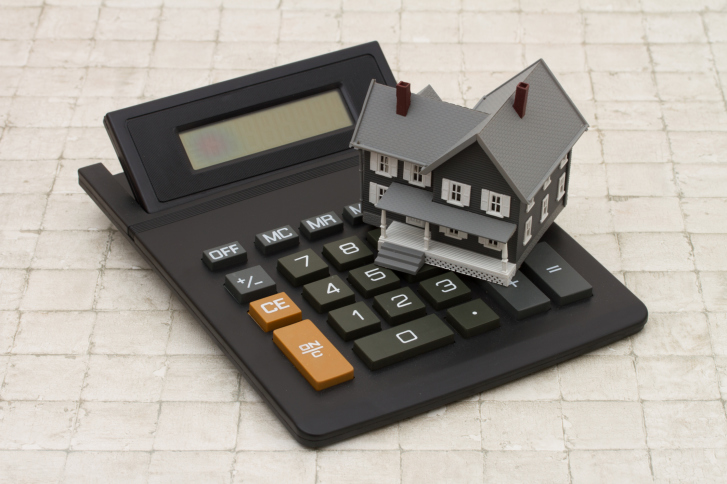 From mortgage to equity to debt-to-income ratio, there are many terms associated with home ownership that can be quite confusing if you’ve never been on the market for a home before. ‘Conforming loan limit’ may be a less familiar real estate term than the rest, but here are some things you’ll need to know about it and what it could mean for your biggest investment.
From mortgage to equity to debt-to-income ratio, there are many terms associated with home ownership that can be quite confusing if you’ve never been on the market for a home before. ‘Conforming loan limit’ may be a less familiar real estate term than the rest, but here are some things you’ll need to know about it and what it could mean for your biggest investment.
What Is The ‘Conforming Loan Limit’?
The Federal National Mortgage Association (Fannie Mae) and the Federal Home Loan Mortgage Corporation (Freddie Mac) are legally required to provide loans for balances below a specific amount, and this amount is what is known as the ‘conforming loan limit’. While the loan amount is determined by credit history and income amount, these conforming loans that are less than the specific amount are considered lower risk. If a loan amount is above the conforming loan limit, it is known as a jumbo loan and usually comes with higher rates.
How The ‘Conforming Loan Limit’ Is Determined
The Federal Home Financing Agency determines any adjustments made to conforming loan limits and the decided-upon amount is based on the home prices from October to October for the previous year. This amount is released annually in November and is enforced the following January. While this limit was continued at $417,000 through 2016, the amount for regions like Alaska, Guam, Hawaii and the United States Virgin Islands is significantly higher than the standard amount due to the cost of housing.
Going Above The ‘Limit’ And Combination Loans
While jumbo loans carry more risk, there are ways to avoid going above the conforming loan limit. There is the option of acquiring a conforming loan for $417,000, the amount established for 2016, and then utilizing a second mortgage for the remaining amount that will ensure you do not have to take out a jumbo loan; however, the rates for a second loan will likely be higher. In the event that you would like to avoid jumbo loans or a combination loan, you may want to consider putting more money down on your initial down payment.
The conforming loan limit changes each year, but it may have a significant impact on your home purchase if it falls below a certain amount. If you are curious about real estate terms because you’re considering a home purchase in the near future, you may want to contact one of our local real estate professionals for more information.
 Many people romanticize the idea of paying off their home mortgage early so they can enjoy their home in retirement, but when it comes to the later years of life, a big house can actually be too much to handle. If you’ve started to consider a smaller home and are wondering why it might be a good decision for you and yours, here are a few things you may want to consider.
Many people romanticize the idea of paying off their home mortgage early so they can enjoy their home in retirement, but when it comes to the later years of life, a big house can actually be too much to handle. If you’ve started to consider a smaller home and are wondering why it might be a good decision for you and yours, here are a few things you may want to consider. With the cost of rent going up across the board and becoming even less affordable in metropolitan centers, it’s never been a better time to seriously consider home ownership. While the price of a home and all the associated costs can certainly seem like a tight squeeze after years of renting, here are some reasons you may want to consider giving up your rental and springing for a home instead.
With the cost of rent going up across the board and becoming even less affordable in metropolitan centers, it’s never been a better time to seriously consider home ownership. While the price of a home and all the associated costs can certainly seem like a tight squeeze after years of renting, here are some reasons you may want to consider giving up your rental and springing for a home instead. When delving into the world of real estate and investment property, there are many terms that will come up that require further explanation. Whether you’ve never heard the phrase ‘home equity’ before or you have a little familiarity, here are the ins and out of what it means and how this asset can help your financial outlook.
When delving into the world of real estate and investment property, there are many terms that will come up that require further explanation. Whether you’ve never heard the phrase ‘home equity’ before or you have a little familiarity, here are the ins and out of what it means and how this asset can help your financial outlook. The cooler months of winter often seem like the best time to hibernate into your house and wait for spring to appear, but it can actually be a prime opportunity to start looking for a new home. If you’re not interested in waiting until next season, here are a few reasons you may want to get started on your home search a little earlier than expected.
The cooler months of winter often seem like the best time to hibernate into your house and wait for spring to appear, but it can actually be a prime opportunity to start looking for a new home. If you’re not interested in waiting until next season, here are a few reasons you may want to get started on your home search a little earlier than expected. When it comes to diving into home ownership for the first time, it can seem like there are so many things you just don’t know. Whether you’re getting advice from your real estate agent, your friends or your family, there are so many things that seem like common sense that they might be lost in the mix of details. Instead of having to squeeze it out of them, here are three tips that are easily forgotten but still essential.
When it comes to diving into home ownership for the first time, it can seem like there are so many things you just don’t know. Whether you’re getting advice from your real estate agent, your friends or your family, there are so many things that seem like common sense that they might be lost in the mix of details. Instead of having to squeeze it out of them, here are three tips that are easily forgotten but still essential. There can be many downsides to both renting and buying, depending on what side of the coin you are on, but if you’re leaning towards purchasing a home it can have added benefits for your bank account that renting does not. While renting can certainly alleviate many of the costs that go along with property ownership, here’s why purchasing a home can have positive monetary affects in the long run.
There can be many downsides to both renting and buying, depending on what side of the coin you are on, but if you’re leaning towards purchasing a home it can have added benefits for your bank account that renting does not. While renting can certainly alleviate many of the costs that go along with property ownership, here’s why purchasing a home can have positive monetary affects in the long run. Whether or not you’re new to real estate, there’s little doubt that you’ve heard the term down payment as it relates to purchasing a home. There’s a lot of different information out there in regards to how much this figure should be and it can be hard to determine exactly what the importance of this payment is. If you’re trying to determine the ideal amount to put down, here are some things to consider.
Whether or not you’re new to real estate, there’s little doubt that you’ve heard the term down payment as it relates to purchasing a home. There’s a lot of different information out there in regards to how much this figure should be and it can be hard to determine exactly what the importance of this payment is. If you’re trying to determine the ideal amount to put down, here are some things to consider. When delving into the realities of home ownership, there can be many factors involved that make it difficult to determine what you need to know and what can wait until later. If you happen to be a first-time buyer who’s looking for the best tips for purchasing a home, look no further than the following three pointers to set you on the right path.
When delving into the realities of home ownership, there can be many factors involved that make it difficult to determine what you need to know and what can wait until later. If you happen to be a first-time buyer who’s looking for the best tips for purchasing a home, look no further than the following three pointers to set you on the right path. There’s a good chance if your children have recently moved out that your home is feeling a lot larger than it used to, and perhaps you’re re-considering the extra space. If downsizing to a condo is on your mind and you’re weighing the benefits of this kind of move, here are some that might make it worth the switch in size.
There’s a good chance if your children have recently moved out that your home is feeling a lot larger than it used to, and perhaps you’re re-considering the extra space. If downsizing to a condo is on your mind and you’re weighing the benefits of this kind of move, here are some that might make it worth the switch in size.